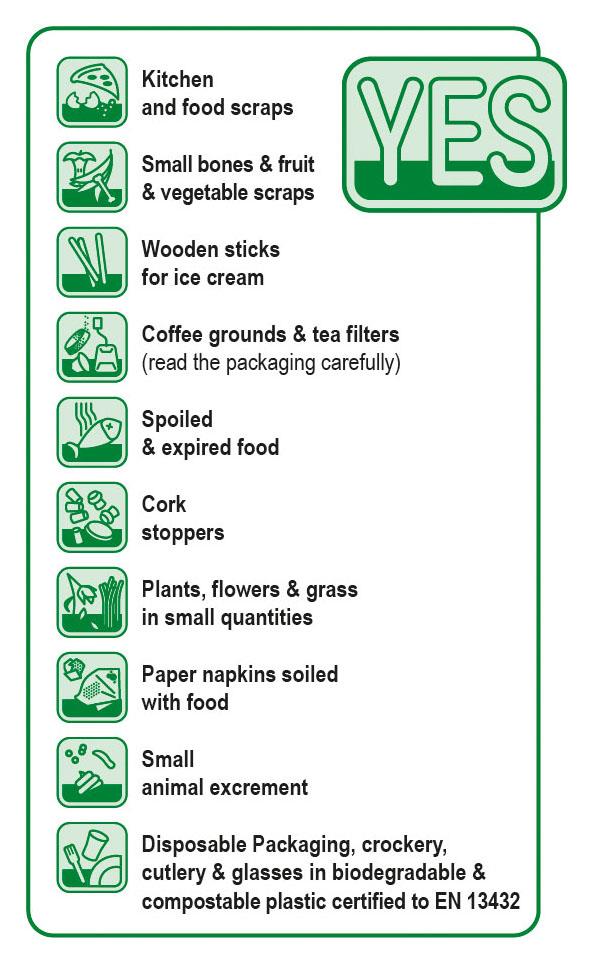Organic waste often has high water content, and is therefore also known as wet waste. Essentially it refers to food waste, more specifically, a type of waste that can decay.
Separate collection and specific treatment of organic waste avoids sources of pollution (leachate liquids in the soil and water and biogas in the atmosphere) while management separate from other household waste allows the creation of compost that can be used as a nutrient for soil regeneration.
This waste should be collected in biodegradable and compostable bioplastic bags certified to EN 13432 - they should not be overfilled to prevent them from splitting.
Bins lined with compostable plastic bags must be vented to ensure good aeration; this enables food waste to be collected in the home without producing unpleasant odours. Only adequate ventilation ensures that the degradation process is not triggered and prevents the formation of organic liquids at the bottom, thereby substantially reducing the formation of odours and the proliferation of insects.

If in doubt, check the website of the company managing your local waste service
Separately-collected organic waste is taken to composting or anaerobic digestion plants, where it decomposes through a controlled process to become compost that can be used in agriculture and horticulture as an alternative to chemical fertilisers.